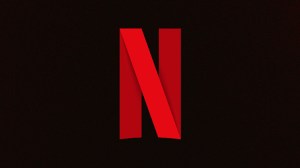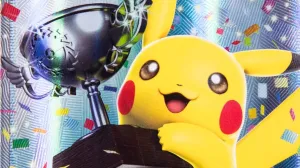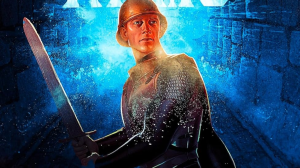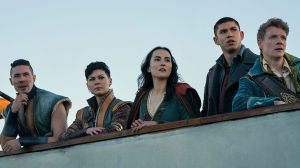Even in the world of paranormal podcasting, there are a number of series that dive deep into unexplained events, making it hard for any one host to stand out. Unfortunately, the bigger the following you earn, the more you open yourself up to all of your actions becoming a point of public backlash, which is exactly what happens to Lily Sullivan’s character in the film Monolith. Much like the isolation experienced by her on-screen character, Sullivan had her work cut out for her in the project, as she’s the only performer to appear on screen as she engages with callers who are shedding unsettling insight into a bizarre phenomenon. Monolith hits theaters and digital on February 16th.
Videos by ComicBook.com
Monolith is described, “While trying to salvage her career, a disgraced journalist begins investigating a strange conspiracy theory. But as the trail leads uncomfortably close to home, she is left to grapple with the lies at the heart of her own story.”
ComicBook.com caught up with Sullivan to talk starring in the insular project, her future with the Evil Dead franchise, and more.
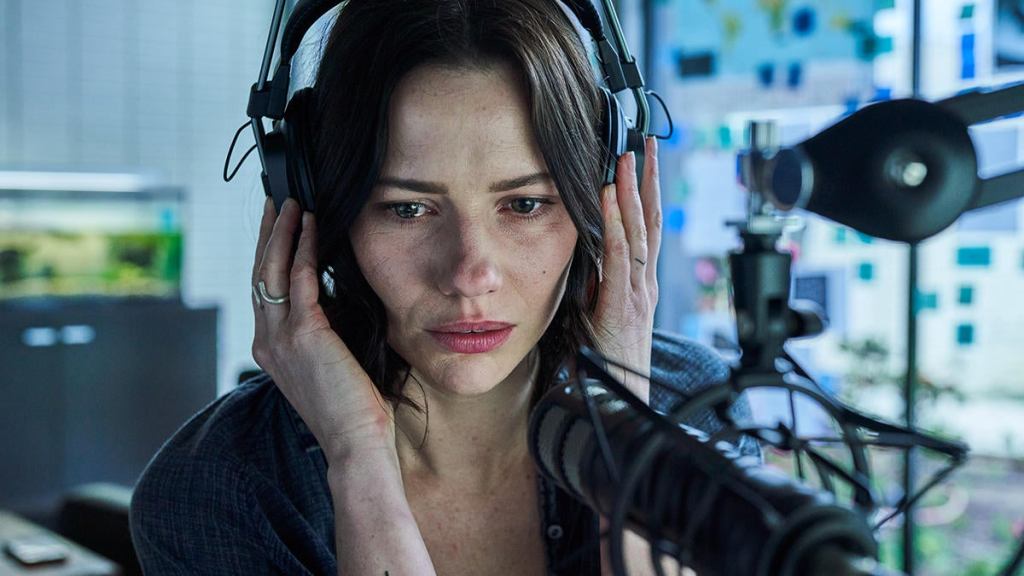
ComicBook.com: As I’m watching this movie, I couldn’t help but wish I could subscribe to your character’s show and hear about all of these bizarre occurrences and objects. I wondered if you at all have an interest in that type of paranormal, unexplained phenomenon that can happen?
Lily Sullivan: Definitely. I feel like it’s far too boring to believe that all these phenomenons can’t happen, you know what I mean? It’s like when people are like, absolutely “no” with astrology. I’m like, “Why not have the mathematics of the stars to validate my weird personality or choices in life?” But yeah, definitely.
I don’t know if I have the investigative ability to make that banging murder-wall. That was quite impressive, and it would probably just be a lot of crappy printouts and just scrunched-up cigarette ash. Yeah, I’d be pretty useless. But the idea is great.
Well, honestly, it comes as a little bit of a relief to hear that you’re not particularly interested in a murder wall, because that has a quite an ominous implication that could be taken the wrong way. So we’ll prepare that headline, “No, Lily Sullivan does not want a murder wall.” You’re off the hook.
Totally. No, no, no, never. Never.
What was your preparation for playing this type of character and playing a podcaster? Did you look to any real-life figures, journalists, hosts, or just figures in pop culture to inspire this complex and complicated public figure?
At the beginning, with Matt Vesely, the director, we had a yarn with a journalist, her name is Georgina Savage, who’s awesome and had created her own podcast, was a journo before, and then had gone on this whole journey in South Africa with the white rhino, basically, and the conservations out there and the power of … Oh, it’s called The Invisible Hand, which is the idea of who is really running it and the operation of it all. And it’s actually quite a brilliant podcast.
Then she just broke down how she would just basically have her recorder, it’s just interviewing people over and over and over again and then having to cut the fat of that. It was really interesting. Then also thinking about how to not be annoying with your voice when you’re talking into people’s ears or whispering into their ears or they’ve got their headphones on and they’re quiet, they’re blocking out the world and just listening to you. You’re speaking to their imaginations, which is just, for me, I think prep-wise, was finding how not to be annoying and how to hold people’s attention. By doing that, it was quite wild to have to see everything myself in my head to have to really paint these pictures, which also happens when you strip away any other actor. No other body language, nothing to read, no other set of language, which is the body itself, it’s just your own mind.
I would find, at points, because we actually had Ansuya [Nathan] who was reading all of the parts, just actually live-fed into my headphones, which were noise-canceling, and in the end, I just lose vision or I’d just start literally looking into the void and then after just have snow vision. So yeah, it was quite a bizarre experience. So actually making a podcast, I really do take my hat off to those who have to just physically talk, but also if you’ve got a banter podcast.
Because you are alone in this movie, how much of that process was incredibly challenging, how much of it you were in your head versus freeing? Knowing you got to pace yourself as you felt necessary, that you weren’t waiting for, like on other movies you’ve worked on, whether it’s blood splatter and things exploding, that balance of freeing versus challenging?
Having a one-man band, my one department at the lunch table, was not a highlight. No, I kid. Also, because we shot this film in 15 days … Say, Evil Dead that I did before this, it was nearly five months, whatever it was in the end, so it was freeing in that sense that I could approach it like theater and [it was] quite terrifying. It was covering 15 pages of dialogue a day, which is just wild. Usually you cover two.
Also, we shot in chronological order, so that was just this beautiful gift to just, once the film started, it was like, “Okay, we literally are running to the end of this and shooting in order,” so the momentum as it built, you could see the end of the tunnel, as well, but also knowing you had to do the most whack sh-t to get to the light.
But yeah, it was liberating, it was terrifying. At one point, I lost my mind completely and called up and was like, “I actually can’t do tomorrow. We need to move around these scenes.” And then the team and the producer was like, “We’ve been waiting for you to make this call, Lil, we’ve been waiting.” And they’re also like, “Lucky for you, it’s only you. So we could sub around those scenes. And it’s one location.” I was like, “Oh.” So I wasn’t letting anyone down, which was nice.
I wonder what that phone call was like, if they were calling behind the scenes like, “I think she’s about to snap. She’s about to snap.” And, “Oh, she snapped. Okay, she has snapped. Good.”
At one point they were like, if you asked me if I wanted to stay on set, to actually stay in the house, which at first I was like, “Hell yeah, look at that bath. Look at the automatic heated floors.” I was like, “Great.” And then I got there and then was just like, “Absolutely not. I need to go back to my cottage, light a fire, and rock myself and just being like, ‘Who is this crazy narcissist and am I a narcissist? Should I do a movie where people only have to listen to me? Is that the craziest thing you’ve ever done?’”
What was that collaborative process like, since it was such an intimate group of you who were bringing this to life? Did you feel, “My mission is to bring [Lucy Campbell’s] script to life,” or was there a lot of back and forth between all of you? Did the project evolve along the way as you were shooting?
It was the tightest script I’ve ever read, and it had to be because it was with this program called New Voices South Australian Film Corp, so basically they provide people with X amount of money, they can shoot it in this time period, they have to edit it in this time period, which I’m pretty sure is six months, wild, and shoot it in 15 days, and I think it’s $500,000 maybe, Australian, so it’s monopoly money.
Basically the way they wrote the script is, instead of trying to fit this high-conceptual piece into, which is why I loved it, and to try to fit it into the small budget, instead they grew it. That was the root system that was like, “Okay.” That was how Lucy came up with the idea. So it was just like, I didn’t really adjust anything. Maybe I added a few “ums” in because I probably forgot what I was saying or struggling to listen.
For me, also what I love, if you are going to try to take on something bold like this and expose yourself for every department, was that in the script, also was the edit, and Matt was so specific, and Michael Tessari, the DOP, because they were like, “This has to be just one take. This can be this. We’re going to shoot this when the reveal of the entity, whatever, the congealing of whatever is, all one take.” Expose me, walk back, body double in. I would do-si-do around the camera and then be my other self, and it was just really beautiful in that sense of problem-solving in that way. But otherwise, the script was just pretty much word for word.
They announced that a new Evil Dead spinoff is on the way, but I couldn’t help wondering about your own Evil Dead movie, your own Evil Dead character. In the year since it’s been out, have you heard updates? Do you know if there’s a return to the Evil Dead with your character, maybe with Lee Cronin, in the future? Or are you like the rest of us fans where you find out when news comes out?
No, there’s conversations. There’s been many, many conversations, many alt paths, many possibilities, which are all quite whack and fun and great. And whatever ends up coming to fruition, I’m excited for it. But yeah, I can’t say anything on it though, but yeah, excited.
Honestly, I’m excited that you can’t say something about whatever may or may not be happening which you may or may not be involved in.
It’s all literally up to the universe of the Evil Dead gods. In a great way, until you cross the bridge, that’s just what it is. The blessings of this industry, and the curse, you have to walk into the unknown, so people should also walk into Monolith. Look at that.
Monolith hits theaters and digital on February 16th.
This interview has been edited for length and clarity. You can contact Patrick Cavanaugh directly on Twitter.





